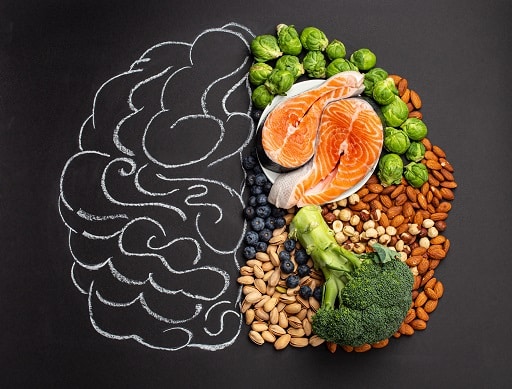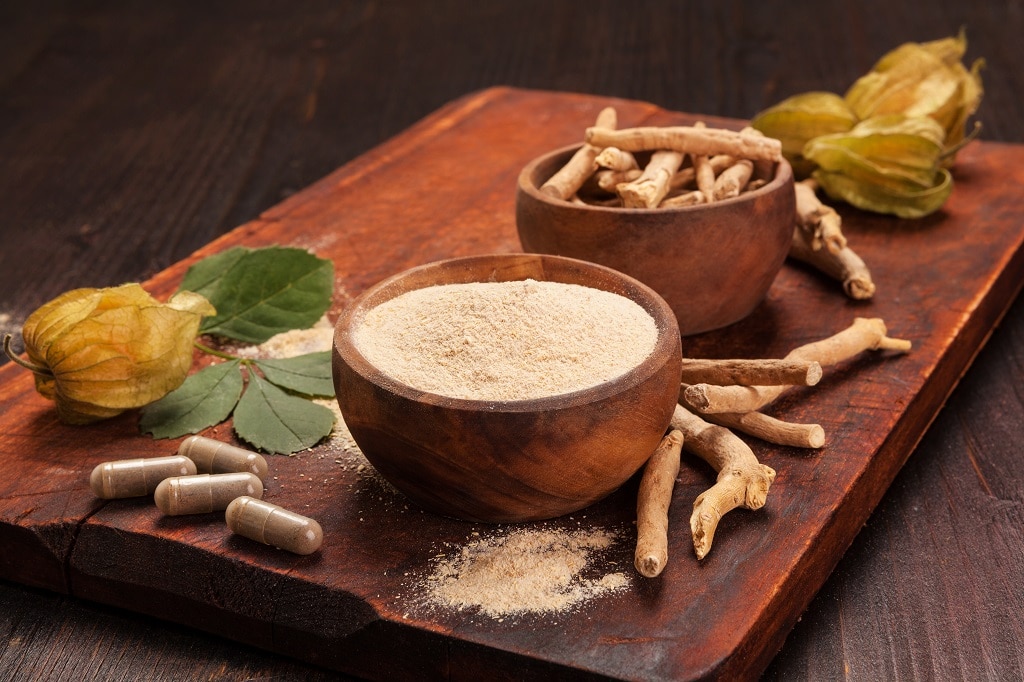
10 Foods That Help Fight Fatigue
We are big fans of the “eat the rainbow” approach to healthy eating. The colorful fruits, vegetables and legumes that are part of this group
Did you know that many women experience more joint and muscle pain around the time of menopause? As if menopause wasn’t a challenging enough time for your body, the changes in hormones can increase inflammation. Each phase of menopause comes with changes inside and out. Whether it’s perimenopause, menopause, or postmenopause, your body goes through a whirlwind adventure. One of those changes that can occur is an increase in inflammation.
So, how can menopause cause inflammation? Read on to learn about the connection between menopause and inflammation.
When you first think of inflammation, it’s easy to picture bruising or redness after an injury. Inflammation from injury or during an infection is your body fighting off foreign invaders trying to attack your system. It’s an acute response to infection or injury to get your body back in working order.
Inflammation isn’t always acute. Chronic inflammation is when your body continues to send signals that you’re in danger despite the attack being over. When inflammation is chronic, it’s slow, long-burning, and can last several months to years.
There are several causes of chronic inflammation:
While acute inflammation plays a vital role in your body’s immune response, chronic inflammation can wreak havoc. Short-term inflammation is essential for survival. In contrast, chronic inflammation plays a role in the development of various diseases like diabetes, asthma, cancer, and rheumatoid arthritis.
Signs of chronic inflammation include:
Most of the time, you don’t need to worry about acute inflammation as it should clear up either on its own or through treatment. The problem with chronic inflammation is that it can be tricky to spot as it doesn’t have the same obvious signs as acute inflammation. Often, the only way to diagnose chronic inflammation is through a blood test and evaluation from your doctor.
After years of dealing with periods, it hardly seems fair that your body has to undergo so many changes as you get older. The exact age you experience menopause can vary, but it generally occurs in your late 40s to 50s.
Estrogen and progesterone are the primary reproductive hormones. As you get older, ovary function declines, and ovulation stops. This leads to missed or irregular periods. When you stop ovulating and having periods, estrogen and progesterone levels drop.
After twelve missed periods, you have officially entered menopause. While menopause means that you can no longer get pregnant and don’t have periods, the decrease in hormones affects the body in several different ways.
Menopause can cause many changes in the body. Your hormones are powerful, and the changes to estrogen and progesterone can result in a range of symptoms like:
The decline in estrogen levels can also impact your bone health by lowering your calcium. This can lead to a decrease in bone density, leading to osteoporosis. You may be more susceptible to fractures, especially in the first few years following your last menstrual cycle.
A variety of factors can impact inflammation but can menopause cause inflammation? What is the link between low estrogen and inflammation?
If night sweats and insomnia aren’t enough to deal with during menopause, you now have to tackle inflammation. Increasing and compelling evidence shows that estrogen decline during the menopause transition drives systematic inflammation.
So, how can low estrogen cause inflammation?
Estrogen affects multiple areas of the body. Natural changes and fluctuating hormone levels have even altered immune profiles and cognitive processes. Research suggests that estrogen speeds up the inflammatory process and promotes the resolution of inflammation. This may explain why women after menopause are more susceptible to chronic inflammatory diseases.
Estrogen is the main female hormone. In addition to regulating the menstrual cycle, it has a ton of jobs to perform in the body and supports various systems, including:
Another common symptom experienced with menopause is pain. It’s not unusual for new aches, cramps, headaches, and joint paint to appear. You may notice that you feel more aches and joint pain than before. That’s because estrogen helps to reduce inflammation. As your estrogen levels drop, inflammation may increase in the body.
Because inflammation may arise from low estrogen levels, the chance of joint pain and swollen joints also increases. While research into inflammation and menopause is still in its infancy, the sex hormones progesterone and estrogen appear to have a complex impact on the body’s inflammatory response.
Research continues to determine the precise mechanism of menopause-related inflammatory proteins. The complex link between hormones, menopause, and inflammation needs more exploration.
One study found that women in menopause have higher levels of key pro-inflammatory cytokines than fertile women. Cytokines are a group of molecules that support the immune system response. Pro-inflammatory cytokines are cytokines that favor inflammation.
Research into the effects of inflammation is ongoing. Experts continue to delve into the complex world of inflammation and its impact on disease and health. So, how can hormonal changes cause inflammation?
Two studies investigated the link between depression and inflammation. They started to explore who would be at a higher risk of depression based on factors like inflammation and menopause.
One of the studies found that depression was more likely in participants with higher levels of a specific inflammatory biomarker called GlycA. The other study found that sexual symptoms in menopause may be a signifier of depression. Both studies use the same data set. So, sexual dysfunction in menopause may be a predictor of depressive symptoms.
As the awareness and understanding of inflammation, menopause, and disease continue, preventative measures can increase. While some women find that inflammation eases out once their hormones balance out, for others, inflammation and joint pain may continue.
Aging is something that comes to everyone. While it’s unavoidable, research suggests that menopausal women are disproportionately affected. Musculoskeletal pain, arthralgia, and arthritis are more common in women. The frequency of these conditions increases with age, and in some cases, it looks to be associated with menopause.
Joint pain is often one of the most commonly reported symptoms of menopause, alongside hot flushes, night sweats, and changes in your period. There are several reasons you may experience an increase in inflammation and joint pain during menopause, including hormone fluctuations, stress, weight gain, or lifestyle changes.
It’s important to know that while changes in hormones appear to play a role in inflammation as you get older, other lifestyle factors can influence inflammation. At this stage in your life, things like weight gain and stress can affect inflammation.
As estrogen levels decline, it can make it easier for some women to gain weight during this time. When you carry more weight, it puts increasing pressure on your joints, resulting in pain and tenderness.
Perimenopause and menopause can increase stress. The changes in your body are not usually a walk in the park. Hot sweats, flushes, and sleep problems can wreak havoc on your quality of life. All that stress can increase levels of the stress hormone cortisol. In turn, this can increase inflammation.
Menopause is a natural stage of aging. Yet, there’s still a knowledge gap around this transition in life. Though practically every woman experiences or will experience menopause, relatively few women actually address their symptoms.
One survey found that 73% of women are not currently treating their menopause, including hot flashes, night sweats, and weight gain. Nearly 50% of women didn’t know the difference between perimenopause (the transition before menopause) and menopause itself.
To reduce inflammation during menopause, focus on making healthy life choices. Regular exercise, a healthy diet, and not smoking are all just as crucial at this part of your life as any other.
If you’re experiencing an inflammation-related disease during the later phase of life or are looking to prevent one, a few simple changes to the diet may help.
What you eat can influence inflammation in your body. A diet high in sugar, processed foods, red meat, refined carbohydrates, and sugar-sweetened beverages can cause inflammation. It might be no surprise that notoriously unhealthy foods also increase inflammation.
Making a few simple tweaks to your diet can help you cut down on the worst inflammatory foods and add more anti-inflammatory choices to your meals.
Try adding these anti-inflammatory foods to your diet:
One of the most commonly reported symptoms of menopause is joint pain. It can affect the knees, shoulders, legs, and hands. Staying active and incorporating low-impact exercise offers health benefits no matter your age. Regular exercise is beneficial as excess weight can put additional pressure and stress on your joints.
Research shows that glucosamine sulfate may help suppress inflammation, relieve joint pain, and improve mobility. One study found that glucosamine sulfate reduces osteoarthritis progression in postmenopausal women with knee osteoarthritis.
Other supplements that may help with menopause joint pain include:
If your stress levels are high, your body releases the stress hormone cortisol. When you feel stressed out, your body releases chemicals that increase the inflammation in the body. Chronic stress kicks your body out of balance. Stress can throw off all the systems you have to keep you healthy and chronic stress can lead to various diseases.
Many women find menopause stressful, and with good reason. It can feel like your body is out of control and not to mention all those uncomfortable symptoms that come with menopause. High levels of stress can increase inflammation before you even bring in your fluctuating hormone levels.
Try to find ways to manage and reduce stress. If you experience stress regularly, focus on doing something each day for yourself. Regular exercise, mediation, and yoga can be useful in reducing and managing stress. Other ideas for reducing stress include:
Research shows that yoga therapy is effective at managing distressing perimenopausal symptoms. Yoga is a type of movement medicine that can help to strengthen joints and muscles. The deep breathing and relaxing elements of yoga are also helpful for other menopause symptoms like hot flushes, anxiety, and depression.
Poor sleep during menopause is linked to increased inflammation. Middle-aged women who get poor sleep have higher levels of inflammation. This puts them at a higher risk of developing heart disease and other health problems.
Women in menopause particularly struggle with sleep. In between the night sweats and the hot flushes, getting a consistent eight hours of sleep can feel impossible. While sleep issues are common in menopausal women, sleeping difficulties can lead to other health issues.
Practices that may help to ease sleep issues during menopause include:
Personal Nature uses a scientific approach to develop customized superfood blends that restore and replenish the body. The Anti-Inflammatory Blend uses a combination of sustainably-crafted ingredients to create a potent mixture:
The Anti-Inflammatory Blend uses a specific combination of ingredients shown to help reduce inflammation. Simply mix one teaspoon in your beverage or breakfast, and you’re set for the day.
The first step in managing menopause-related inflammation is understanding the different causes of inflammation. By managing stress, exercising regularly, eating anti-inflammatory foods, and using an anti-inflammatory super blend, you can look to put your body in the strongest and healthiest position possible going forward.

We are big fans of the “eat the rainbow” approach to healthy eating. The colorful fruits, vegetables and legumes that are part of this group

Many people start to think more about joint health as they get older. Knees get a little achy, and you become much more aware of

Have you ever set a pretty out-there nutrition or weight loss goal only to be disappointed? Sometimes, it can feel like you’re not getting anywhere

Did you know that many women experience more joint and muscle pain around the time of menopause? As if menopause wasn’t a challenging enough time

Did you know that ashwagandha contains compounds that may reduce stress, anxiety, and inflammation? It feels like there’s always something new to try in the
*The statements on this website have not been evaluated by the Food and Drug Administration. The products for sale are not intended to diagnose, treat, cure, or prevent any disease.